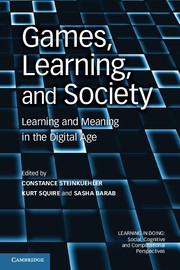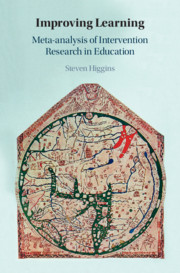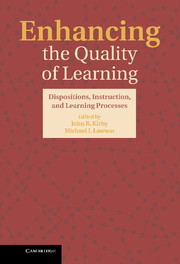Games, Learning, and Society
This volume is the first reader on video games and learning of its kind. Covering game design, game culture and games as twenty-first-century pedagogy, it demonstrates the depth and breadth of scholarship on games and learning to date. The chapters represent some of the most influential thinkers, designers and writers in the emerging field of games and learning - including James Paul Gee, Soren Johnson, Eric Klopfer, Colleen Macklin, Thomas Malaby, Bonnie Nardi, David Sirlin and others. Together, their work functions both as an excellent introduction to the field of games and learning and as a powerful argument for the use of games in formal and informal learning environments in a digital age.
- First reader on video games and learning
- Contributors include scholars, designers and writers
- Presents a powerful argument for the use of games in learning environments
Product details
June 2012Paperback
9780521144520
490 pages
226 × 152 × 33 mm
0.66kg
31 b/w illus. 5 tables
Available
Table of Contents
- Part I. Games as Designed Experience:
- 1. Videogames as designed experience: section one Kurt Squire
- 2. Designed cultures Kurt Squire
- 3. Theme is not meaning: who decides what a game is about? Soren Johnson
- 4. Our cheatin' hearts Soren Johnson
- 5. Playing the odds Soren Johnson
- 6. Nurturing lateral leaps in game design Nathan McKenzie
- 7. Uncharted 2: among thieves - how to become a hero Drew Davidson and Richard Lemarchand
- 8. Interview with harmonix Greg Lopiccolo, Kurt Squire and Sarah Chu
- 9. Yomi: spies of the mind David Sirlin
- Part II. Games as Emergent Culture:
- 10. Videogames as emergent culture: section two Constance Steinkuehler
- 11. Nurturing affinity spaces and game-based learning James Paul Gee and Elisabeth Hayes
- 12. Apprenticeship in massively multiplayer online games Constance Steinkuehler and Yoonsin Oh
- 13. Theorycrafting: the art and science of using numbers to interpret the world Trina Choontanom and Bonnie Nardi
- 14. Culture and community in a virtual world for young children Rebecca W. Black and Stephanie M. Reich
- 15. Culture vs. architecture: second life, sociality, and the human Thomas M. Malaby
- 16. Participatory media spaces: a design perspective on learning with media and technology in the twenty-first century Erica Rosenfeld Halverson
- Part III. Games as a Twenty-First-Century Curriculum:
- 17. Videogames as a twenty-first-century curriculum: section three Sasha Barab
- 18. Prediction and explanation as design mechanics in conceptually integrated digital games to help players articulate the tacit understandings they build through gameplay Douglas B. Clark and Mario Martinez-Garza
- 19. Game-based curricula, personal engagement, and the modern prometheus design project Sasha Barab, Patrick Pettyjohn, Melissa Gresalfi and Maria Solomou
- 20. Discovering familiar places: learning through mobile place-based games Bob Coulter, Eric Klopfer, Josh Sheldon and Judy Perry
- 21. Developing game fluencies with scratch: realizing game design as an artistic process Yasmin B. Kafai and Kyle A. Peppler
- 22. 'Freakin' hard': game design and issue literacy Colleen Macklin and John Sharp
- 23. Models of situated action: computer games and the problem of transfer David Williamson Shaffer.




